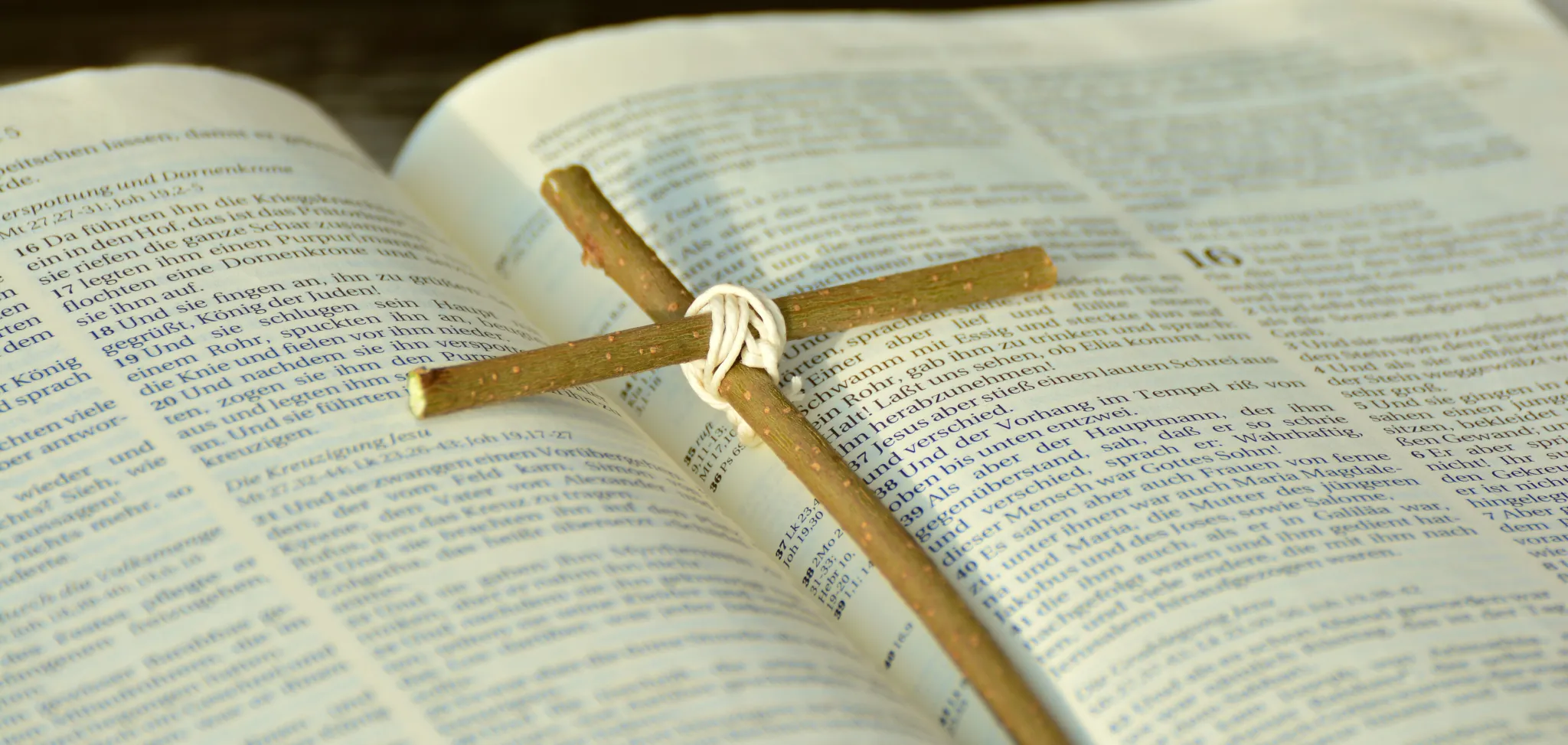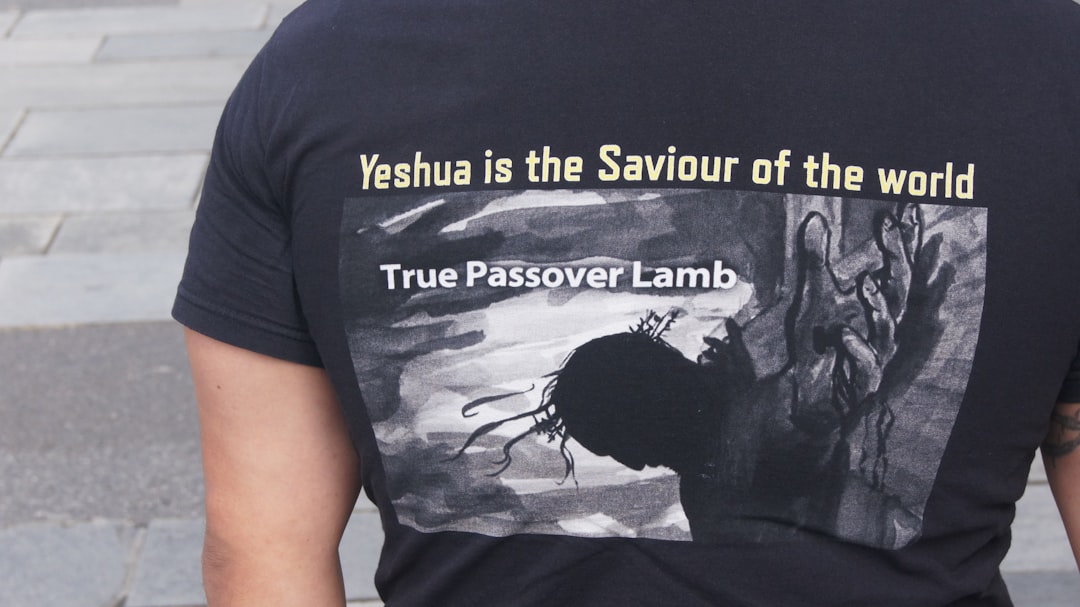In the Old Testament, the concept of Kinsman Redeemer played a crucial role in family redemption and salvation. Understanding this ancient practice can help us appreciate biblical justice, family honor, and spiritual redemption. In this post, we will dive into the meaning and significance of Kinsman Redeemer, as well as some captivating examples from the Old Testament. Read on to explore how biblical culture values family lineage and familial duty as keys to redemption.
The Definition of Kinsman Redeemer in the Old Testament

In the Old Testament, the term “kinsman redeemer” refers to a family member who has the responsibility and duty to redeem a family member who has faced unfortunate circumstances. This was typically done in the case of poverty, family lineage, or when a family member is unjustly treated.
The word “kinsman” comes from the Hebrew word “goel,” which translates to “redeemer” or “avenger.” The role of the kinsman redeemer was significant in Hebrew law and culture, and it was seen as a way of enhancing family honor, protection, and reputation.

The kinsman redeemer had several responsibilities, including redeeming land that had been lost, buying back enslaved family members, marrying a widow in the family, and restoring family inheritance. These acts were not only seen as important in protecting the family’s assets, but also in continuing family lineage and fulfilling family honor.
In the book of Ruth, Boaz is an excellent example of a kinsman redeemer. After Ruth’s husband died, Naomi, Ruth’s mother-in-law, encouraged her to return to her homeland in Moab. However, Ruth refused and instead decided to stay with Naomi and take care of her. While in Bethlehem, Ruth met Boaz, who was a relative of Naomi’s and thus of Ruth’s. Boaz took notice of Ruth’s loyalty and kindness to Naomi and made significant moves to advocate for her dignity and honor in an unrighteous culture.
Boaz eventually became Ruth’s kinsman redeemer by marrying her and providing for her and Naomi’s future generations. The biblical account of Ruth’s story beautifully depicts the importance of kinsman redemption in Hebrew culture.
In conclusion, the concept of kinsman redeemer serves an essential role in the biblical culture. It highlights the importance of family relationships and responsibilities while also emphasizing the value of familial love and integrity. The story of Ruth and Boaz serves as a timeless testament to the concept of kinsman redemption and how it can bring salvation and restoration in family bonds.
The Significance of Family Redemption in Biblical Culture
Family redemption was an important concept in biblical culture, where family ties and responsibilities were taken very seriously. In the Old Testament, the kinsman redeemer was a blood relative who was responsible for protecting and providing for members of his family who were in need. This concept extended beyond just financial assistance and also played a crucial role in maintaining the family’s honor and lineage.
In ancient Hebrew law, the goel, or kinsman redeemer, had a specific role in the family. He was responsible for redeeming any family land that had been sold, marrying a widow to provide for her and continue the family lineage, and protecting any member of the family who was in danger or distress. This emphasis on family protection and care is rooted in the idea that family members should prioritize each other’s needs and always be there for one another.
The concept of family redemption is deeply tied to the idea of covenant relationships in the Bible. In the Old Testament, God made a covenant with his people, promising to protect and provide for them if they followed his commandments. Similarly, the kinsman redeemer was responsible for upholding the covenant relationship with his family members by always being there to support them and keep their family line intact.
Perhaps the most well-known example of kinsman redemption in the Bible is the story of Ruth and Boaz. After Ruth’s husband died, she chose to remain with her mother-in-law, Naomi, and follow her back to Israel. As widows without any male relatives to provide for them, they were in a vulnerable position. Boaz, a wealthy landowner who was also a distant relative of Naomi’s, became their kinsman redeemer and took on the responsibility of protecting and providing for them.
Through Boaz’s kindness, Ruth and Naomi were redeemed and found safety and security in his care. This story is often seen as a symbol of God’s redeeming love for his people and how he will always provide for them, even in their times of need.

While the concept of kinsman redemption may seem outdated in modern times, there are still important lessons we can learn from it. We can prioritize our family relationships and seek to provide for and protect our loved ones. We can also extend our care and compassion to others outside of our family, acting as agents of redemption in a world that is often in need of kindness and support.
In summary, family redemption was a crucial concept in biblical culture, emphasizing the importance of family ties and responsibilities. The kinsman redeemer was responsible for providing for and protecting members of his family in need, and this concept reflects the covenant relationship between God and his people. In modern times, we can learn from these lessons and seek to prioritize our family relationships and act as agents of redemption in the world around us.
Examples of Kinsman Redeemer in the Old Testament
In the Old Testament, we see several examples of the concept of Kinsman Redeemer being put into practice. Here are a few examples that illustrate the importance of family redemption and why it mattered so much to the people of biblical times:
-
The story of Ruth and Boaz: This is perhaps the most well-known example of Kinsman Redeemer in the Bible. In the story, we see the character of Boaz redeeming the family of Ruth by marrying her and taking her into his family lineage. By doing so, he fulfilled his familial duty, protected Ruth and Naomi’s family honor, and ensured their family would continue.
-
Levirate Marriage: According to Hebrew law, if a man died childless, his brother was to marry his wife and produce children in his brother’s name. This ensured the continuation of the family lineage and inheritance. This was seen as a redemptive act, not just for the widow, but for the family as a whole.
-
Blood relative redemption: In Leviticus 25, we see the concept of a Kinsman Redeemer in the context of property ownership. If a family member had to sell their property due to financial trouble, a relative could redeem it by paying the price of the land. This prevented the family from losing their land and inheritance and was considered a redemptive act.
-
Covenant Relationship: Throughout the Old Testament, we see God redeeming his people in various ways. In Isaiah 44:23, we read that God redeemed his people and forgave their sins. This redemption was a result of God’s covenant relationship with his people, which was based on love and grace rather than just family ties.
These examples show us the importance of family redemption, familial duty, and protection of family honor in the Bible. The concept of Kinsman Redeemer was more than just a legal obligation, it was a way to demonstrate love and uphold biblical values.
In the next section, we’ll explore how the concept of Kinsman Redeemer ties into the broader theme of spiritual redemption and salvation.
The Relationship Between Spiritual Redemption and Kinsman Redeemer
The concept of Kinsman Redeemer is deeply rooted in the biblical tradition of family redemption and responsibility. While it was practiced in a literal and tangible sense in the Old Testament, it also has a spiritual application that is relevant to our everyday lives.
« Exploring the Age-Old Question: Did God Really Die?
Discovering the Meaning Behind the Greatest Commandment in the Bible »
The idea of redemption in the Bible is closely tied to the concept of family lineage and inheritance. When a family member fell into financial or social ruin, it was the responsibility of the nearest relative, or Goel, to act as their kinsman redeemer and redeem them from their situation. This redemption included the payment of debts, the restoration of property, and even the obligation to marry a widowed family member to carry on the family lineage. It was an act of love, responsibility, and loyalty to the family.
Similarly, spiritual redemption is rooted in the familial relationship between God and humanity. Humanity fell into sin and separation from God, and it was through the sacrifice and redemption of Jesus Christ, our Kinsman Redeemer, that we were brought back into the family of God. Through His love and sacrifice, He paid our debts, restored our inheritance, and even carried on our spiritual lineage.
The story of Ruth and Boaz is a beautiful example of the connection between family redemption and spiritual redemption. Boaz, as Ruth’s kinsman redeemer, not only redeemed her family from financial ruin and restored their property, but he also married her, carrying on the family lineage and ultimately becoming a distant ancestor of Jesus Christ. Ruth, through her loyalty and faithfulness to her family and Naomi, was also grafted into the lineage of Jesus.
In modern times, the concept of Kinsman Redeemer can still be applied in our relationships and communities. As Christians, we are called to love and care for our family members, both literal and spiritual, and to bear one another’s burdens. We are called to act as Kinsman Redeemers to those in need, to help restore them and carry on their legacy and inheritance.

In conclusion, Kinsman Redeemer is a biblical concept that highlights the importance of family redemption and responsibility, both in a literal and spiritual sense. It is a beautiful example of the redeeming love of God and the familial relationship between God and humanity. As Christians, we are called to apply this concept in our relationships and communities, acting as Kinsman Redeemers to those in need and showing the redeeming love of Christ to the world.
The Role of Ruth and Boaz in Kinsman Redemption
When it comes to understanding the concept of Kinsman Redeemer in the Old Testament, the story of Ruth and Boaz is often used an example. Ruth was a Moabite widow who found herself in a foreign land after her husband’s death. However, she chose to stay with her mother-in-law Naomi.
Naomi and Ruth were living in extreme poverty and Naomi was unable to provide for Ruth. In those days, family lineage and honor were of utmost importance, and so it fell to a Kinsman Redeemer, or Goel, to redeem the family honor and protect the family line.
Boaz, a wealthy landowner, was a distant relative of Naomi’s and therefore qualified to be a Kinsman Redeemer. In Ruth 4, we see Boaz stepping in to redeem the family honor of Naomi and Ruth. He first had to make sure that there was no nearer relative who had the option of marrying Ruth and continuing the family line.

Once this was established, Boaz went ahead with the redemption process. This involved purchasing the land that belonged to Elimelech, Ruth’s deceased husband, and also marrying Ruth. This ensured that the family line would continue and that Naomi and Ruth would be provided for.
The story of Ruth and Boaz is not only a great example of Kinsman Redemption in action but also embodies many other biblical values such as love, kindness, and loyalty. It shows us that family ties and responsibilities are important and should not be taken lightly.
As Christians, we can also see a deeper spiritual significance in the story of Ruth and Boaz. The Bible teaches that Jesus Christ is our ultimate Kinsman Redeemer, who has redeemed us through His death on the cross and has brought us into a new covenant relationship with God.
By understanding the concept of Kinsman Redeemer in the Old Testament, we can see that family redemption and protection are important in biblical culture. This teaches us that we should take care of our family members and protect their interests when possible. It also shows us that we have a responsibility to maintain the honor and legacy of our families.
In modern times, we can apply the concept of Kinsman Redeemer in our own lives by being there for our family members and helping them in times of need. We can also understand the importance of family ties and make sure to maintain these relationships as a way of honoring and protecting our families.

Overall, the story of Ruth and Boaz serves as a powerful example of Kinsman Redemption, family responsibility, and the importance of biblical values. Here are some key takeaways from their story:
- Kinsman Redeemer was an important concept in the Old Testament and involved redeeming and protecting the honor and lineage of a family.
- Family ties and responsibilities were highly valued in biblical culture.
- The story of Ruth and Boaz illustrates these concepts and also embodies other biblical values such as love and loyalty.
- Jesus Christ is our ultimate Kinsman Redeemer, who has redeemed us through His death on the cross.
Applying the Concept of Kinsman Redeemer in Modern Times
As we study the concept of kinsman redeemer in the Old Testament, we can also apply its principles to our modern lives. Kinsman redemption is grounded in familial duty and responsibility, but it extends beyond familial ties and into our relationship with God.
In our modern society, we can see the principles of family redemption in our drive to protect and care for our loved ones. Similarly, Christians have a duty to protect and care for their spiritual family through love and support. We also have a responsibility to seek justice and goodness for those who are marginalized or forgotten by society.
One of the most famous stories of kinsman redemption can be found in the book of Ruth, where Boaz serves as a goel or kinsman redeemer for Ruth and Naomi. Boaz not only redeemed their family lineage but also protected and provided for Ruth and Naomi.
This story reminds us that kinsman redemption is not only about family honor or inheritance but also about redeeming love and selflessness. It teaches us to look beyond ourselves and our own interests to care for others in our communities.

In the New Testament, we see the ultimate kinsman redeemer in Jesus Christ, who through his death and resurrection, offers spiritual redemption to all who accept it. He bought us with a price, and as His followers, we are called to extend that same love and forgiveness to others.
The concept of kinsman redeemer also emphasizes the importance of covenant relationships in our lives. In a covenant relationship, we are bound by a deep sense of loyalty and commitment to one another, just as Boaz had with Ruth and Naomi.
As Christians, we are bound by a covenant relationship with God and with one another. We are called to love and support one another as spiritual family and to treat each other with the same selflessness and care that Boaz showed Ruth and Naomi.
In conclusion, the concept of kinsman redeemer is not just a relic of biblical times but a timeless principle that we can apply to our modern lives. It teaches us to look beyond ourselves and our own interests to care for others in our communities and to love and support one another as spiritual family.












